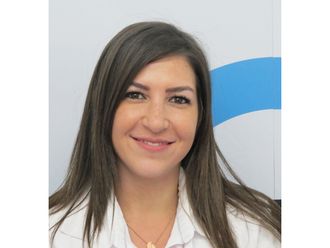
A set of newly available pre-emptive drugs are offering relief for migraine patients, but UAE doctors say those hit by the debilitating condition must continue to take a holistic management approach.
“Migraines are the second most common type of headache, causing significant disability and absence from work,” says Dr Anandi Damodaran, Specialist Neurologist at Medcare Hospital Sharjah.
“Migraines aren’t curable, but they can be controlled with preventive medications and lifestyle changes.”

Migraines aren’t curable, but they can be controlled with preventive medications and lifestyle changes.
Doctors aren’t totally sure what causes these pulsing, throbbing headaches, but imbalances in certain brain chemicals may play a role. Estimated to occur in about 15 per cent of the population, migraines may begin gradually and intensify over a few hours, and are often accompanied by vomiting or blurry vision, Dr Damodaran explains. These headaches are typically triggered by stress, sleep deprivation, hunger and fatigue. Women in particular have more frequent episodes because of hormonal fluctuations.
Since they may be aggravated by bright light, loud noises and physical activity, patients often seek relief by lying down in a dark and quiet room.
Migraines are treated in two ways — either drugs that relieve the pain or stop its progression, or through a routine of regular preventive medications aimed at inhibiting attacks.
Over the past few years, US and European authorities have approved a range of new preventive drugs that target a specific molecule, the calcitonin gene-related peptide (CGRP), a protein in the brain and nervous system involved in the transmission of pain and the resultant reaction of tissues and blood vessels. Although various forms of protein act differently around the body, the new drugs aim at the nerves and blood vessels involved in migraine.

New research shows that CGRP, which is a neuropeptide, has a central role in the pathophysiology of migraine
“New research shows that CGRP, which is a neuropeptide, has a central role in the pathophysiology of migraine,” says Dr Karoly Zoltan Vadasdi, Neurology Specialist, Canadian Specialist Hospital. “These medications are monoclonal antibodies that are able to block the action of CGRP.” Aimovig (Enerumab), Emgality (Galcanezumab) and Ajovy (Fremanezumab) are members of this novel CGRP-antagonist group. Administered as monthly injections, they are considered a game changer in many ways, but it’s important to note that CGRP drugs don’t work for everyone.
“They have the advantage of very few side effects, as compared to earlier oral medications,” Dr Zoltan says. “Aimovig is already available in the UAE, and covered by insurance, depending on the insurance policy and proper justification by a treating neurologist.”
Botox, a compound used to even out fine lines and wrinkles, is already being used to prevent chronic migraines, adds Dr Damodaran, but the new drugs expand treatment routes, particularly for those with episodic attacks. Triptans, which block pain pathways in the brain, dietary supplements and antidepressants are some of the other medical routes. However, several existing drugs are unsuitable for those at risk of strokes, heart disease or high blood pressure.
Both doctors say lifestyle modifications remain a major component of migraine management. “Regular sleep schedules, healthy meals that are eaten on time and sports activity will help avoid trigger factors,” explains Dr Zoltan. Staying hydrated by drinking plenty of water is also essential.
In addition, Dr Damodaran advises maintaining a headache diary to track the frequency and severity of migraines. “If the headache occur at more than four or six month intervals, consult a doctor for preventive medicine.” Overall, establishing and sticking to a regular routine remains the best advice for anyone prone to migraines.












